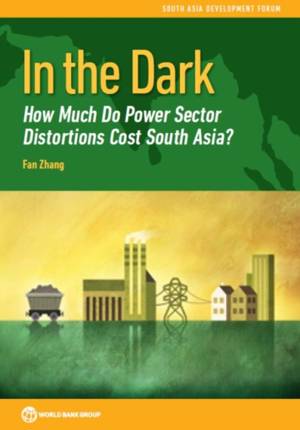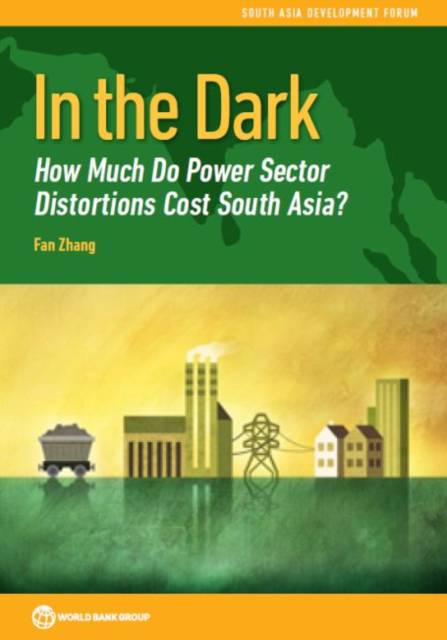
- Afhalen na 1 uur in een winkel met voorraad
- Gratis thuislevering in België vanaf € 30
- Ruim aanbod met 7 miljoen producten
- Afhalen na 1 uur in een winkel met voorraad
- Gratis thuislevering in België vanaf € 30
- Ruim aanbod met 7 miljoen producten
Omschrijving
Electricity shortages are among the biggest barriers to South Asia's development. Did you know that 30 percent of households in South Asia are not connected to the power grid? Even households and firms that are connected often experience long hours of blackouts. How much do power sector distortions cost South Asian economies? Previous research considers a narrow definition of the power sector which includes generation, transmission, and distribution, but often does not account for the upstream distortions in coal and gas production, downstream distortions from the lack of electricity access, or the pollution generated by fossil-fuel plants. They also address only the fiscal costs of distortions though many distortions do not have a direct fiscal cost. This study offers a comprehensive assessment of the economic cost of energy sector distortions in Bangladesh, India, and Pakistan. It uses microeconomic data from utilities, households, and firms to estimate key parameters for each country. It then uses these parameters to generate precise estimates of the cost of regulatory, institutional, and social and environmental distortions. The study finds that some of the most costly distortions are upstream and downstream. Urgent power sector reforms should be a top priority because they can rapidly and effectively promote economic growth. Smart reforms would reduce the need for massive investments in generation because existing capacity is currently poorly utilized. The report finds that price distortions are often not the most important source of economic cost. Institutional reforms would have a greater and more sustainable effect than energy pricing liberalization alone. Removing price distortions and addressing environmental costs could, however, lead to a sharp increase in electricity prices. Therefore, improving efficiency and providing targeted social assistance to poor and vulnerable households should be prioritized. In the absence of privatization, incentive regulation is likely to be more effective than corporatization to improve efficiency.
Specificaties
Betrokkenen
- Auteur(s):
- Uitgeverij:
Inhoud
- Aantal bladzijden:
- 258
- Taal:
- Engels
- Reeks:
Eigenschappen
- Productcode (EAN):
- 9781464811548
- Verschijningsdatum:
- 12/12/2018
- Uitvoering:
- Paperback
- Formaat:
- Trade paperback (VS)
- Afmetingen:
- 175 mm x 251 mm
- Gewicht:
- 539 g

Alleen bij Standaard Boekhandel
Beoordelingen
We publiceren alleen reviews die voldoen aan de voorwaarden voor reviews. Bekijk onze voorwaarden voor reviews.











